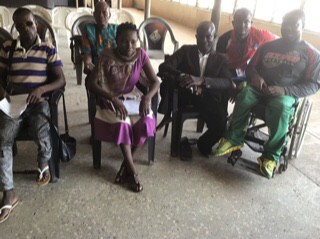
An Enugu-based Nongovernmental Organisation (NGO), Initiative for Eradication of Poverty and Empowerment of the Disabled (IFEPED) has called on the state government to domesticate the disability law.
The President of the group, Mr Victor Ugwu made the call on Tuesday in Enugu during an enlarged meeting of the NGO.
Ugwu also appealed to the state government to offer automatic employment to suitably qualified persons with disability as well as appoint such persons into the cabinet and as local government liaison officers.
He expressed concern that the state government had not taken any step to domesticate the Discrimination Against Persons with Disabilities (Prohibition) Act, 2018.
He said that President Muhammadu Buhari had signed the act into law and directed the federating states to domesticate the law.
He, therefore, appealed to the state government to comply with the provisions of the act in line with the United Nations Conventions Agreement on the Rights of People with Disabilities (CRPD).
He appealed to the state governor to reinvent the unique role of the state as the hub of civil administration in the Southeast.
Ugwu said that people living disability had lesser legal protection, poor healthcare services and education, lack access to essential services and live in extreme poverty.
“However, the enactment of the Discrimination Against Persons with Disabilities (Prohibition) Act is only a first step in fulfillment of Nigeria’s obligations under CRPD.
“We call for effective measures by government for its full implementation to ensure equal treatment and participation of persons with disability,” Ugwu said.
Responding, the Enugu State Commissioner for Health, Prof. Emmanuel Ikechukwu, said that the government and other stakeholders needed to support the passage of the law in the state.
Ikechukwu, who was represented by a staff of the ministry, Mrs Lovina Eneh, said that the advocacy by the NGO was laudable and should be appreciated.
Ikengaonline reports that the event was attended by physically challenged persons from parts of the state.